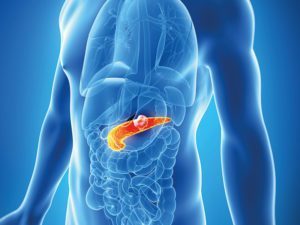The diagnosis of cancer is no longer a short-term death sentence; at least, it is not in some tumors. The survival in breast neoplasms is 85%; in melanoma, it is 90%; and even in the lung, which refuses to bend, the prognosis has improved in recent years. However, there are some tumors whose diagnosis is still not very promising.
Pancreatic cancer is one of them. Until now, chemotherapy was the only weapon to combat it, but 5-year survival barely reaches 5% of patients. In recent years, oncologists have not managed to close the gap with the tumor, which always takes the lead, but things can start changing soon.

An international study presented this weekend at the Congress of the American Society of Clinical Oncology (ASCO) has opened the door of personalized medicine to this type of cancer. The research has validated, for the first time, a remote-controlled treatment against a specific mutation in this type of tumors: as maintenance therapy after initial chemotherapy for the subgroup of patients with this mutation, this drug improves survival.
This therapy is aimed at a subgroup of patients with metastatic pancreatic cancer who have a mutation in the BRCA genes, which are responsible for activating proteins that help repair Deoxyribonucleic Acid (DNA). When these genes undergo an alteration, it costs them to repair the DNA damage and increases the risk of suffering from several types of cancer.
“This mutation would affect between 7% and 8% of the total of patients with pancreatic cancer. These patients have a DNA repair deficit and the drug works where they have that failure”, explains Dr. Teresa Macarulla, a researcher at the Vall d’Hebron Institute of Oncology (VHIO), who has participated in the study. Life expectancy in metastatic pancreatic tumors, which are treated with chemotherapy, ranges from 8 months to 1 year.
In fact, less than 50% of patients receive 2nd-line chemotherapy treatment (when the patient does not respond to the 1st pharmacological option).
The drug is Olaparib, an inhibitor of the PARP protein, a molecule that participates in the repair of DNA. An old acquaintance of oncologists -this treatment has already shown efficacy in other ovarian tumors with this mutation-, what this drug does is to target the tumor cells to deactivate the function of the PRPA enzyme repairing their DNA and let them die. It is a targeted treatment because Olaparib only attacks malignant cells, without touching healthy ones.

The drug has been tested as a maintenance treatment after the primary chemotherapy sessions. “Patients were treated with chemo and, if at 16 weeks the tumor did not grow, one group was treated with Olaparib and another with placebo”, comments Macarulla. The result of the study revealed that patients who were given placebo were 3.8 months free of disease progression.
That is, without the tumor growing back. This time increased to 7.4 months in that group that took Olaparib. In addition to being presented at the Chicago Congress – to which this newspaper was invited by pharmaceutical Roche – the research will be published in the scientific journal New England Journal of Medicine.
Although the prognosis of the disease remains precarious, Macarulla celebrates the finding and the new lines of research that are opened: “It is the first time that there is a positive pancreas study by biomarkers. And there are other genes that could benefit from this type of therapy and that could affect up to 20% of patients. In regard to the pancreas, we are in need of new therapies because mortality is very high and it is the tumor in which we have achieved less progress and few increases in survival”, admits the researcher.
Dr. Josep Tabernero, director of the VHIO, adds: “It is the first step to treat patients with personalized medicine and to expand the indications for treatment”.


